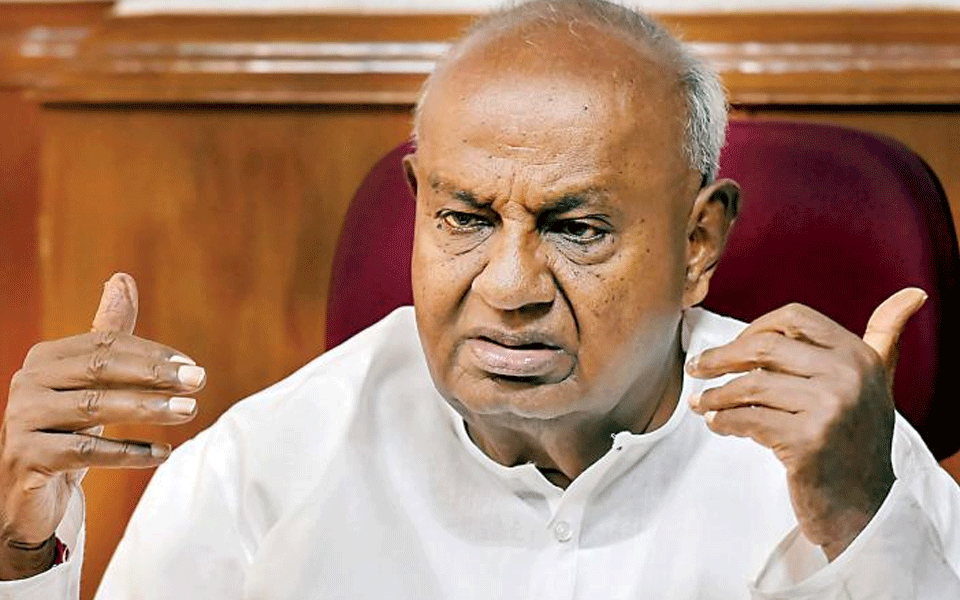Bengaluru: Former Indian Prime Minister HD Devegowda and his wife Chennamma on Wednesday tested positive for COVID-19.
The JD(s) supremo took to his official Twitter handle to break the news and said he and his wife along with other family members were self-isolating. Devegowda also urged people who have come into contact with them in the last few days to get themselves tested for the virus.
He also requested party workers and well-wishers to not panic about the development.
Let the Truth be known. If you read VB and like VB, please be a VB Supporter and Help us deliver the Truth to one and all.
Bengaluru (PTI): Veteran Congress leader Shamanuru Shivashankarappa passed away at a private hospital here on Sunday due to age-related ailments, official sources said.
He was 95 and represented the Davanagere South Assembly constituency. He had been undergoing treatment at the hospital for some time.
Shivashankarappa is survived by three sons, including S S Mallikarjun, Karnataka Minister for Mines and Geology and Horticulture, and four daughters.
His daughter-in-law, Prabha Mallikarjun, is the Member of Parliament from Davanagere.
A former minister, Shivashankarappa, served as treasurer of the Karnataka Pradesh Congress Committee (KPCC) for several decades and was the president of the All India Veerashaiva Mahasabha, the apex body of the influential Veerashaiva-Lingayat community.
He was also a noted educationist who established several educational institutions and was an industrialist.





